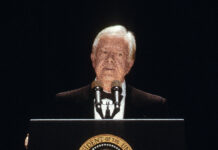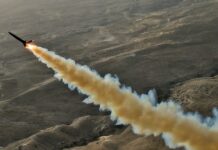Millions of Pakistanis are heading to the polls today after months of divisive campaigning from the country’s three largest political parties.
Nearly 106 million Pakistanis are registered to vote for members of the lower house of parliament and four provincial assemblies.
More than 371,000 troops have been deployed across the country to oversee the peaceful process of democratic participation at polling stations which opened at 8am (3am GMT).
Votes will be cast for 272 National Assembly seats that are directly contestable.
Another 70 are reserved for women and minorities, are distributed between parties that win at least 5% of the vote.
The Pakistan Muslim League-Nawaz (PML-N) party won the 2013 elections without an outright majority and with a voter turnout of 55%.
Pakistan has been periodically ruled by the military during its 71-year existence.
Subscribe to our newsletter and stay updated on the latest news and updates from around the Muslim world!
This election is significant because it will mark only the second time that one civilian government has transferred power to another after serving a full five-year term.
Who are the candidates?
The election is widely seen as a contest between PML-N and the Pakistan Tehreek-e-Insaf (PTI) party.
The former Prime Minister, Nawaz Sharif, will be observing these elections from a jail cell, after he was convicted by an anti-corruption court and sentenced to 10 years in prison in absentia.
He was disqualified from office last year by the Supreme Court after the Panama Papers leak exposed his family’s ownership of several luxury apartments in London.
Mr Sharif returned from London two weeks ago with his daughter, Maryam, and both were arrested. Their appeal hearings will not be held until after the election.
Mr Sharif’s brother, the 68-year-old former governor of Punjab province, Shehbaz Sharif, is now leading PML-N.
However, Imran Khan, 65, and PTI have been rising in the polls.
The country’s most well-known opposition leader, who is running an anti-corruption campaign, has denied colluding with the country’s powerful military.
Numerous political analysts say he will have to make serious gains in Punjab province – a PML-N stronghold – in order to win the elections.
The Pakistan Peoples Party (PPP) of assassinated former Prime Minister Benazir Bhutto is expected to come third.
Now led by Ms Bhutto’s son, Bilawal Bhutto Zardari, who is a 29-year-old Oxford University graduate.




















